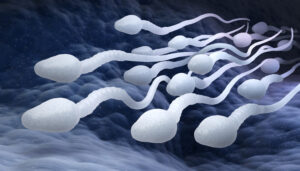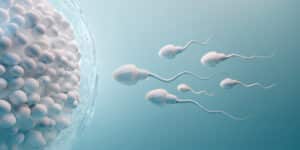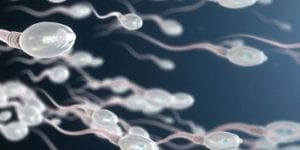Sperm are affected by diet, and the effects are rapid. This is the conclusion of a study by researchers at Linköping University, in which healthy young men were given a high-sugar diet. Published in PLOS Biology, the study provides new insights into the function of sperm and could, in the long term, contribute to new diagnostic methods for measuring sperm quality.
High Sugar Consumption and its Influence on RNA Fragments in Human Sperm
“We see that diet affects sperm motility, and we can link the changes to specific molecules in them. Our study has shown rapid effects that are noticeable after one to two weeks,” said Anita Öst, lecturer at the Department of Clinical and Experimental Medicine at Linköping University and head of the study. Sperm quality can be affected by various environmental and lifestyle factors, with obesity and related diseases such as type 2 diabetes known to be risk factors for poor sperm quality. The research group that conducted the study is interested in epigenetic phenomena, in which physical properties or the strength of gene expression change even though the genetic material, the DNA sequence, remains unchanged. In certain cases, such epigenetic changes can cause traits to be passed on from one parent to their offspring via the sperm or egg cell.
In an earlier study, the scientists showed that male fruit flies that had consumed excessive amounts of sugar shortly before mating were more likely to produce offspring that became overweight. Similar studies in mice have shown that small RNA fragments, known as tsRNA, play a role in these epigenetic phenomena that occur in the next generation. These RNA fragments are found in unusually large quantities in the sperm of many species, including humans, fruit flies, and mice. Their function has not yet been studied in detail. Scientists have speculated that the RNA fragments in sperm may be involved in epigenetic phenomena, but it is too early to say whether this is also the case in humans. The researchers wanted to determine whether high sugar consumption affects the RNA fragments in human sperm.
Sperm Motility Can Change in a Short Period of Time
The study examined 15 normal, non-smoking young men who followed a diet for two weeks in which they received all their food from the scientists. The diet was based on the Nordic nutritional recommendations for a healthy diet, with one exception: In the second week, the researchers added sugar equivalent to about 3.5 liters of carbonated drinks or 450 grams of candy each day. Sperm quality and other indicators of the participants’ health were examined at the beginning of the study, after the first week (during which they ate a healthy diet), and after the second week (during which the participants had additionally consumed large amounts of sugar).
At the start of the study, one-third of the participants had low sperm motility. Motility is one of several factors that influence sperm quality, and the proportion of individuals with low sperm motility in the study was consistent with that in the general population. The researchers were surprised to find that the sperm motility of all participants normalized during the study. “The study shows that sperm motility can change in a short period of time and appears to be closely related to diet. This has important clinical implications.
However, we cannot say whether it was the sugar that caused this effect, as it could also be a component of a healthy basic diet that has a positive effect on sperm,” explains Öst. The researchers also found that the small RNA fragments associated with sperm motility had changed. Further research is being conducted to determine whether there is a link between male fertility and RNA fragments in sperm, and whether the RNA code can be used for new diagnostic methods to measure sperm quality in in vitro fertilization.





